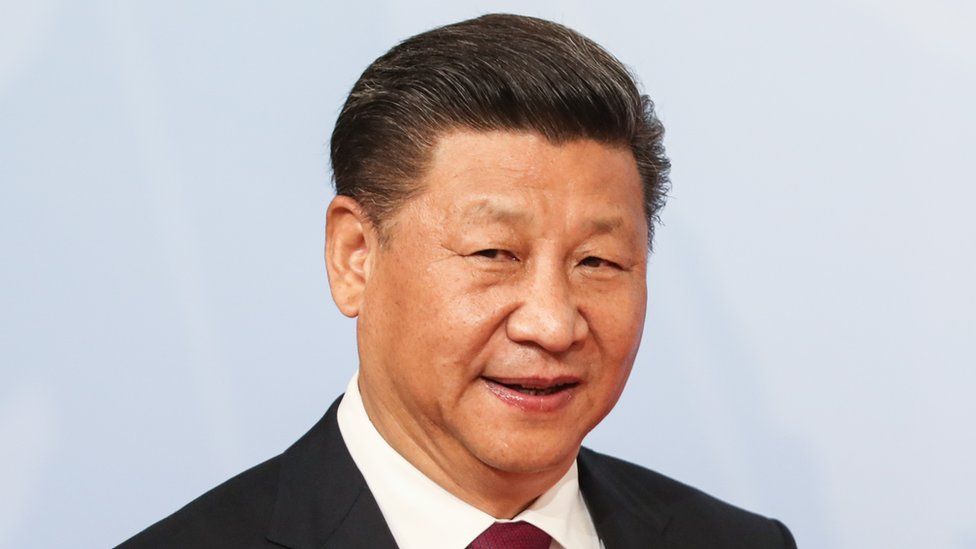In Xi’s speech to the 20th Party Congress, the word that was prominently used was ‘fight’, of course in its Chinese equivalent.
The General Secretary of the Communist Party of China has from the start of his getting that job portrayed himself in Napoleonic colours. Whether it be the many visuals of Xi Jinping striding in the middle of lines of immobile soldiers, or riding a jeep in the process of inspecting an army unit, the image that has been cultivated is that of Xi the Warlord. Of course, warlords have been plentiful in earlier periods of Chinese history, and seldom in a way that would evoke admiration, which is probably why neither of his two immediate predecessors (Jiang Zemin and Hu Jintao) sought to clothe themselves in outfits resembling military fatigues. Xi’s wife, Peng Liyuan, is not just a popular folk singer but had until recently a high rank in the PLA. Indeed, through her contacts, across the decades Xi Jinping cultivated almost as many contacts in the military as he did amongst party officials who were civilians. As a consequence, he began favouring policy options (especially in international issues) through a military lens. As the unfortunate consequences of rule over Japan of General Hideki Tojo and his key senior military commanders, that country embarked on a series of steps beginning with the takeover of Manchuria and the invasion of China. Eventually, it was a civilian, Foreign Minister Shigemitsu, who was the first to sign the surrender document on September 2, 1945, bringing to a close World War II. Given the trajectory of the path taken by the CPC, it was inevitable that there would be Cold War 2.0. What Xi has done is to ensure through his actions and speeches that this fact can no longer be passed off as simply the imagination of a practitioner of geopolitics. Whether it be the largely successful cover-up of the origins of Covid-19 or the unchallenged takeover of more that 80% of the ASEAN Sea ( named in most maps as the South China Sea), Xi has had his successes. The problem facing him and the country he leads is that each success, the scale of which and the method used cause anger in much of the international community, sparks off a reactive process that may ultimately lead to a kinetic conflict involving the PLA and other powers. The takeover of the water spaces of the ASEAN Sea could be reversed, were the Quad to get over the influence of pacifists within it and fashion itself into a full-fledged defense and security alliance. As yet, such a progression in the trajectory of the Quad has yet to take place. Even otherwise, it seems unlikely that an attack by the PLA in Ladakh or Arunachal or both, together with an effort by GHQ Rawalpindi to accomplish what Field Marshal Ayub Khan tried and failed to do in 1965 with his thrust into Chhamb, would succeed in its objective. Which would be to cut off Kashmir from the rest of India in conjunction with a PLA effort to cut off the rest of India from Assam and the Northeast by occupying the Siliguri Corridor, otherwise known as the Chicken’s Neck. Were a security alliance involving the Quad members to be formed, an attack by the PLA would very quickly move to a contestation of the control of the Tibetan plateau, while moves against India by GHQ Rawalpindi would get repulsed with ease. What India would expect from its security partners would not be troops but weapons and intelligence, as well as coordination of the navies and air forces of the four powers to deny the PLA underwater and surface platforms access into the Indian Ocean Rim.
In Xi’s speech to the 20th Party Congress, the word that was prominently used was “fight”, of course in its Chinese equivalent. Since 2015, Xi has spoken of hostile countries seeking to throttle the PRC and once again subject the Chinese people to bondage. Unlike his predecessors Jiang Zemin and Hu Jintao, Xi was explicit in promising to annex Taiwan during his period in office. Given that he would need to build up support for a fourth term almost as soon as he enters on his third, Xi may regard the conquest of Taiwan as being necessary to make the CCP ignore the economic

